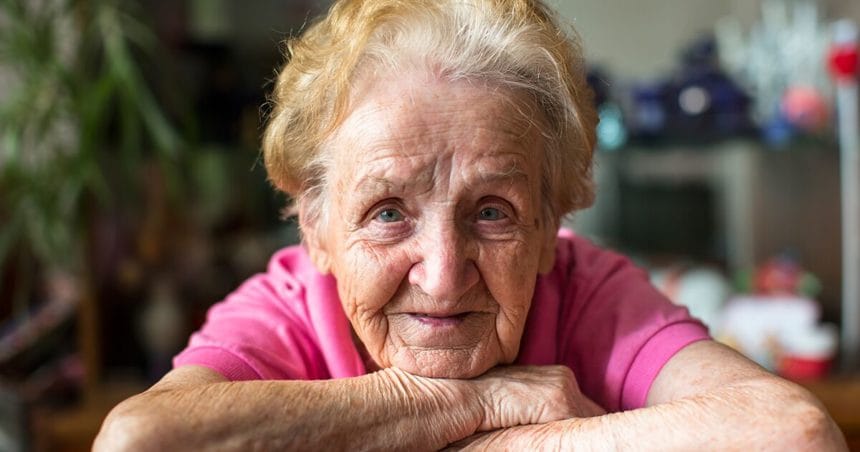Beyond Memory Loss

Source: UNC Health Talk
Have you ever had trouble remembering what day of the week it was? Or finding your keys? Maybe you forgot to pay a bill on time and got an overdue notice in the mail.
First, take a deep breath. Most adults, no matter what age, have had experiences like these. But it’s understandable that these moments can be alarming for older adults, as the risk of Alzheimer’s disease and other types of dementia rises as we age.
Maureen Dale, MD, a geriatrician at the UNC Hospitals Geriatrics Specialty Clinic, helps us recognize early signs of Alzheimer’s and offers advice on what to do if you’re concerned about yourself or a loved one.
Alzheimer’s Disease vs. Typical Aging
“It’s not always easy to tell the difference between early signs of Alzheimer’s and normal aging,” Dr. Dale says. “That’s why it’s important when you have concerns to see your doctor and consider seeing a specialist, such as a geriatrician or neurologist.”
At that first visit with the doctor, bring all the medications that you take, including common over-the-counter drugs such as aspirin and dietary supplements such as vitamins. That’s because some medications can cause confusion and other symptoms that might suggest Alzheimer’s but really aren’t related to the disease.
Although Alzheimer’s disease can occur in younger adults, it’s much more common in people older than 60. Many people in this age group experience occasional incidents of forgetfulness, but people with early Alzheimer’s have memory loss problems much more consistently, to the point that it interferes with their ability to function in daily life and carry out normal activities.
“In normal aging, it would not be uncommon for a person to forget someone’s name from time to time. What we see in Alzheimer’s is more consistent trouble remembering people’s names,” Dr. Dale says. “In normal aging, it’s also not unusual for a person to make an error from time to time and forget to pay a bill. In contrast, people with Alzheimer’s are consistently forgetting to pay their bills, whereas previously they had been able to pay their bills without any problems.”
Other examples of memory loss related to Alzheimer’s can include having trouble coming up with the right words, forgetting which room in the house is your bedroom, or getting lost while driving to or from familiar places.
Lesser-Known Signs
People think of Alzheimer’s as a memory disease, and it is. But some early signs have little to do with memory loss. Some people experience personality and mood changes. They become more reckless or impulsive than they used to be or make quick decisions without thinking through the consequences first.
Others go in the opposite direction, toward social withdrawal. “They stop doing a lot of the activities that they used to do, and that may look more like depression than the memory loss that people traditionally think of when they think of Alzheimer’s,” Dr. Dale says.
The Alzheimer’s Association has a checklist of 10 early signs of Alzheimer’s. Dr. Dale says it’s a good idea to familiarize yourself with the list ahead of time, and then take it with you when you see your doctor. The 10 signs are:
- Memory loss that disrupts daily life.
- Challenges in planning or solving problems.
- Difficulty completing familiar tasks at home, at work or at leisure.
- Confusion with time or place.
- Trouble understanding visual images and spatial relationships.
- New problems with words in speaking or writing.
- Misplacing things and losing the ability to retrace steps.
- Decreased or poor judgment.
- Withdrawal from work or social activities.
- Changes in mood and personality.
Why Early Diagnosis Matters
There is no cure for Alzheimer’s disease, but treatments are available to help manage the symptoms and provide a better quality of life. For that reason, getting a diagnosis as early as possible is extremely important.
“The biggest benefit of early diagnosis is that it gives patients and their families time to plan for the future,” says Dr. Dale.
In the early stages, most patients still have a good understanding of their disease process and what’s going on, and they understand the decisions they face going forward. They typically will have more control in designating who will make medical decisions on their behalf and what those decisions might be.
“It also gives us time to talk about some of the things that we can do to help people function better for longer,” Dr. Dale says. “I talk to people about staying active after diagnosis. That means having regular activities, whether it’s exercise or walking or enrolling in a balance and strength class, and also keeping their mind active.”
What to Do if You’re Concerned About Alzheimer’s Disease
If you have experienced any of the 10 early signs of Alzheimer’s and are concerned, talk to your primary care doctor. He or she can evaluate you and refer you to a specialist if needed.
If you’re concerned because someone in your family is showing possible signs of Alzheimer’s, then it’s important to talk to your loved one about it. This can be difficult, Dr. Dale says, because people who experience these symptoms may be in denial and are likely frightened. But it’s important for you to speak with your family member openly and honestly, and for the individual to see a doctor for an evaluation as soon as possible.